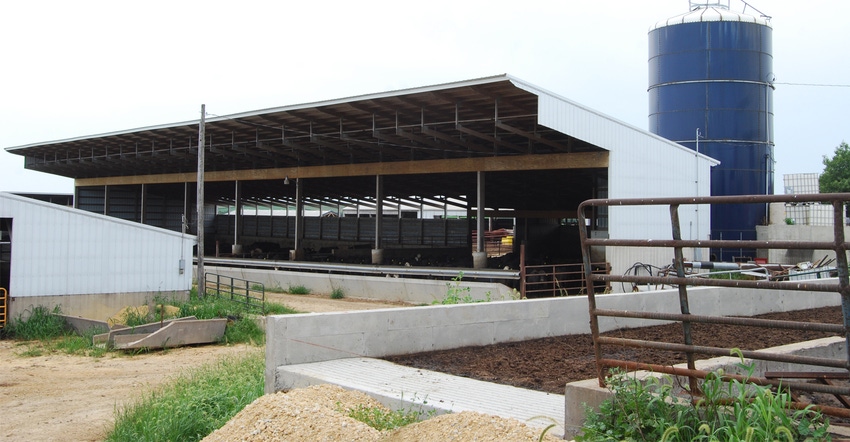March 20, 2017

Last month in the Legal Issues column of Wallaces Farmer magazine, we talked about several areas the Iowa Legislature is focusing on with respect to agriculture this legislative session. Two key issues are water quality and Section 179. As the session has progressed, those issues remain on the forefront, along with a few other important bills farmers should be aware of, including a bill proposing to provide nuisance protection for livestock farmers.
To keep on pace and finish the session in 100 days, the Iowa Legislature sets two self-imposed “funnel” deadlines. According to the 2017 Iowa Legislative Session Timetable (which is subject to change) published on the Legislature’s website, there are two “funnel” deadlines. The first was March 3 (when Senate bills must be reported out of Senate committees and House bills must be reported out of House committees). The second deadline is March 31 (when Senate bills must be reported out of House committees and House bills must be reported out of Senate committees). The 2017 session is scheduled to end April 18.
In short, any bill that is introduced that does not pass in its committee of origin prior to the first funnel deadline is deemed “dead” and does not progress, thus limiting the number of bills the Legislature has to deal with in the session. It is important to note that, appropriations, ways and means, and oversight bills are not subject to the funnel deadlines. Policy bills that contain spending or taxing provisions that passed the policy committees then move on to appropriation or the ways and means committee for review.
Below is a summary of a few bills that have been introduced since our last column and are still “alive” after the first funnel deadline.
Nuisance legislation introduced
The Responsible Farm Protection Bill, Senate File 447 and House File 468, would establish a new section in Iowa Code to provide nuisance protection to responsible livestock farmers. The nuisance protection would apply to both confinement feeding operations and open feedlot operations. To qualify for the nuisance protection, a livestock farmer must comply with state and federal law and use existing prudent and generally utilized management practices reasonable for the operation.
Under the proposed legislation, all nuisances will be presumed permanent nuisances and not temporary, meaning there cannot be successive lawsuits filed for the same alleged nuisance. If a judge or jury finds that a livestock operation does constitute a nuisance, the total amount of damages awarded cannot exceed:
• decrease in fair market value of the property plus
• medical damages
• damages for annoyance and loss of comfortable use and enjoyment of property, which are limited to one and a half times the decrease in fair market value of the property plus medical damages
The legislation also provides that costs and expenses of a nuisance lawsuit, including reasonable attorney fees, may be awarded to the farmer if the judge or jury determines there is no nuisance. Farmers who have been deemed habitual violators under Iowa law will not qualify for the nuisance protections contained in this proposed legislation. The existing nuisance protections in Iowa law that have been found unconstitutional on a case-by-case basis will remain in place and unchanged by the proposed legislation.
Some other bills that have been introduced this session of interest to farmers:
• House File 288 proposes a water excise tax and replaces the current sales tax on metered water with a 6% excise tax with a sixth of the tax collected going to the SAVE fund.
• Senate File 456 provides that the board of water works trustees in cities with a population of 39,000 or more shall be discontinued or dissolved and instead the city councils of the cities shall become the governing bodies of the water utilities. This bill gives the city councils all authority with respect to acquisition by purchase, condemnation, lease, sale, etc., of the property or facilities of the water utility. It requires city managers to designate an administrator to be the manager of the water supply system subject to approval of the city council.
• House File 327 proposes to amend Iowa Code Ch. 459, 459A and 459B regarding stockpiling of manure from confinement feeding operations and open feedlot operations. This bill essentially extends the more detailed and specific stockpiling requirements in Ch. 459 to Ch. 459B for dry bedded cattle and hog operations and to Ch. 459A for open feedlot operations. There are more technical aspects in this bill that can be reviewed by readers on the legislative website.
• HF 443/SF 357 would modify licensing requirements for electricians and electrical workers by stating that the term commercial does not refer to use, installation or structure or premises associated with either a farm or an industrial installation. This bill deems that the law on electrical licensing not be applicable to a person performing any installation on a farm, if the person is associated with the farm as an owner, a relative or employee of the owner, or an operation or manager of the farm. It also exempts farm installation from permit and inspection requirements.
This column is current as of March 9. We will provide updates on the legislative session in upcoming months. For additional updates and information on the bills mentioned above, search the bills at legis.iowa.gov. Special thanks to the assistance of Eldon McAfee and Julie Vyskocil, my co-workers and attorneys with Brick Gentry, P.C. in the writing of this column.
Erin Herbold-Swalwell is an attorney with Brick-Gentry PC in Des Moines. Contact her at [email protected].
About the Author(s)
You May Also Like






